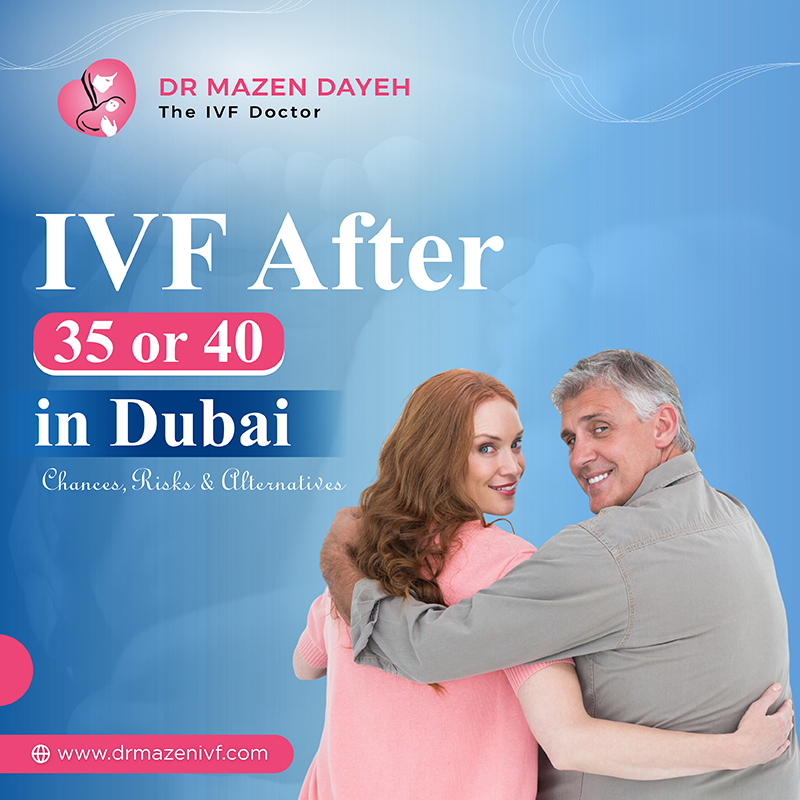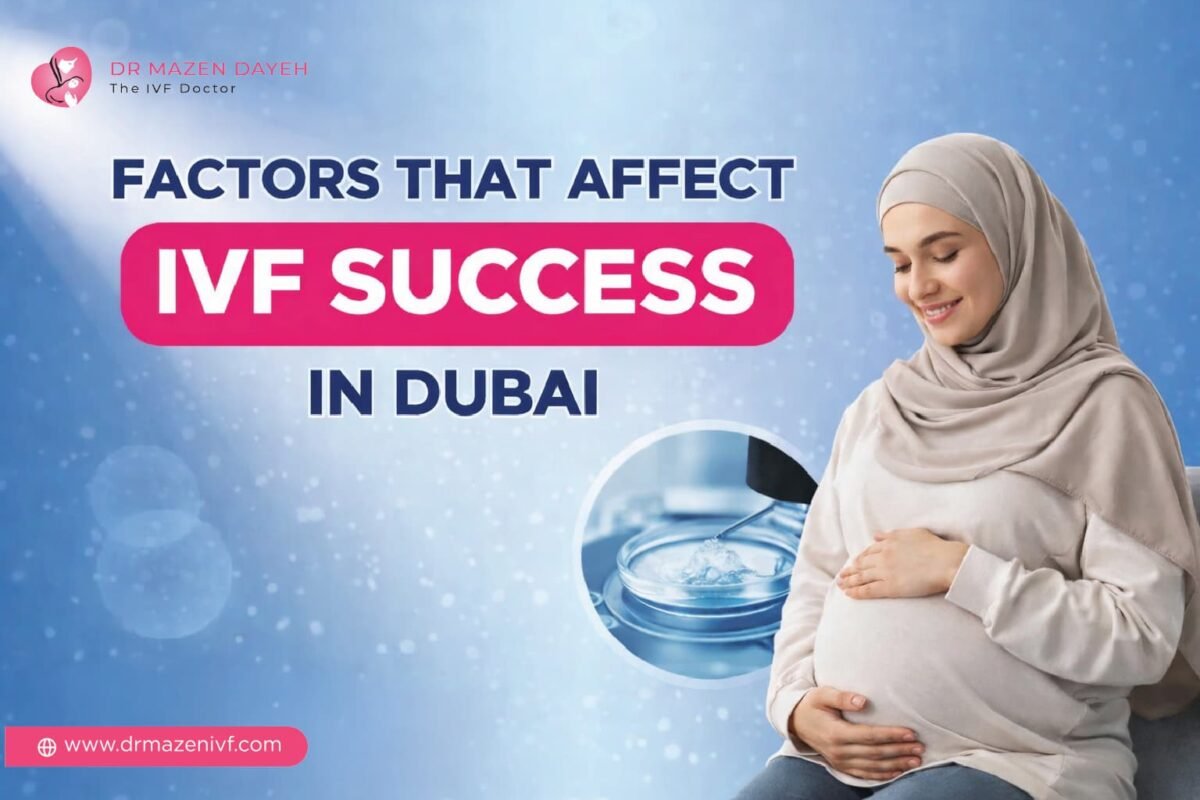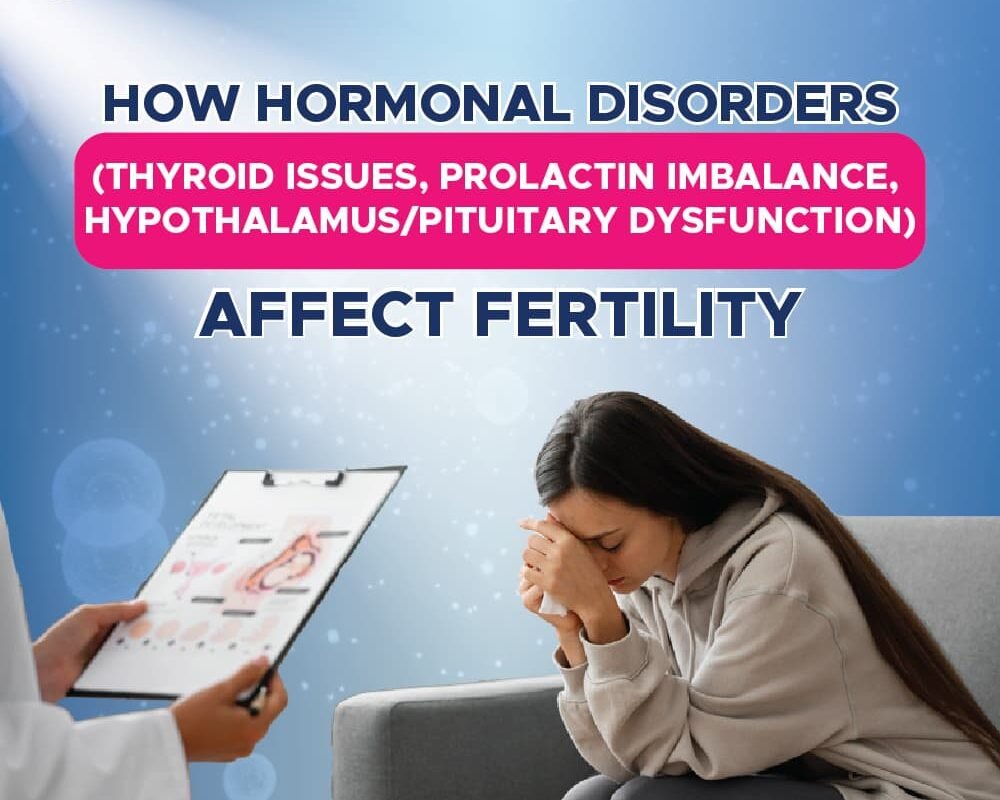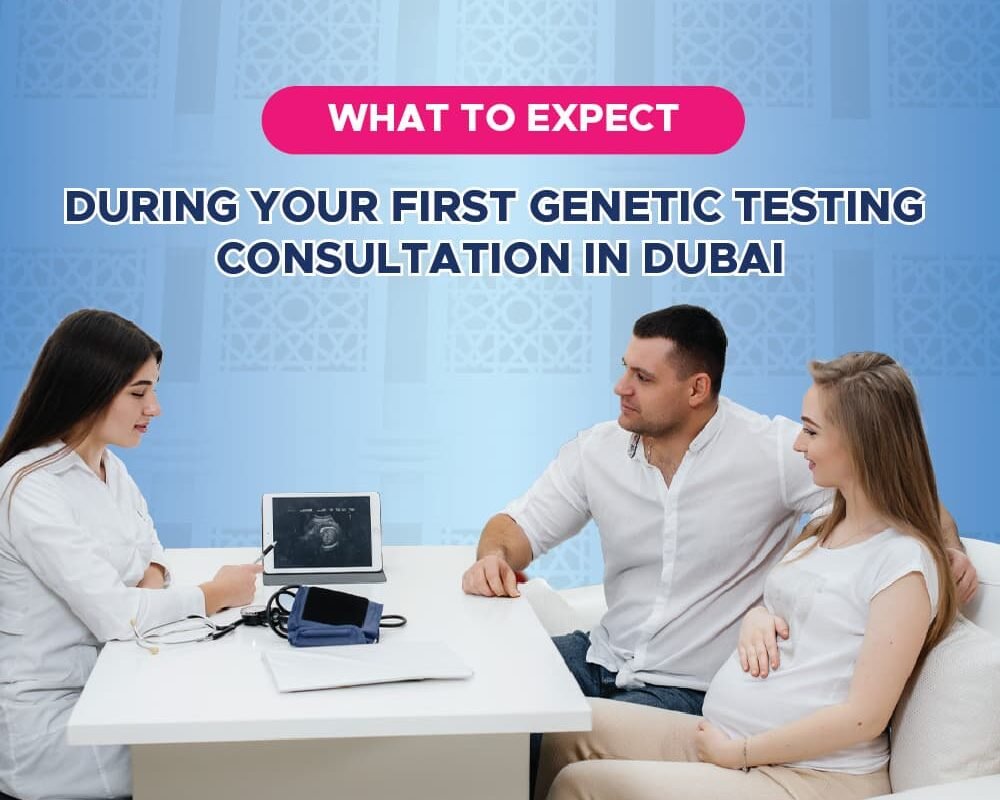Many women are deferring childbirth until later life. This is due to various reasons such as pursuing career ambitions, health issues, and choice. Since this is the case, many people find themselves looking at other options, such as IVF, when conception is not easy. Age is considered to be an issue when it comes to conception. However, IVF offers the option.
This blog provides information about IVF after 35 in Dubai and IVF after 40 in Dubai regarding the potential success rates, risks, and alternatives.
Understanding Fertility After 35
Fertility starts to decline slowly after the age of 30, and at an increasingly rapid rate after the age of 35. The quality and quantity of eggs decrease with advancing age.
Doctors often refer to pregnancy after 35 years of age as an advanced maternal age pregnancy. This does not indicate that a pregnancy is impossible, but only that it may need extra care and medical support.
Many women have achieved pregnancy through IVF after 35 years in Dubai, too, if they are healthy and receive timely treatment.
IVF After 35 in Dubai: What Are the Chances?
Many factors affect the success rates of IVF treatment. However, age is one of the most significant factors.
The success rate of IVF in Dubai for individuals above or equal to 35 years of age is still regarded as good compared to many other nations worldwide. The average:
- Females aged between 35 and 37 years have a fair level of success
- Women aged 38-39 years old may require more than one cycle of treatment.
- Egg quality, the uterus, and proper medical planning are factors that could lead to better outcomes.
The technology that fertility clinics in Dubai utilise today has also proven successful even beyond the age of 35.
IVF After 40 in Dubai: Is It Still Possible?
Getting pregnant over 40 is more difficult, but it is not impossible. Many women often ask if IVF over 40 can really work effectively in Dubai. Well, it all depends.
The quality of the egg declines drastically beyond 40. The IVF success rate in Dubai beyond 40 is less than that of other age groups.
Doctors can prescribe:
- Increased IVF cycles
- Embryonic genetic testing
Despite the low success rates, it is still possible for women to experience healthy pregnancies.
IVF Success Rate in Dubai Over 35
The IVF success rate in Dubai over 35 is influenced by several factors:
- Overall health of the woman
- Hormone levels
- Egg and sperm quality
- Uterine condition
- Lifestyle habits
Healthy eating, stress control, and proper medical treatment all support better outcomes. Many couples see success within one or two IVF cycles when treatment is started early.
IVF Success Rate in Dubai Over 40
The success rate of IVF in Dubai for people aged 40 and above is lower, but there is always hope. This can vary from 10% to 20% per cycle, considering certain health issues of the individuals.
In some clinics, better results can be achieved by using advanced laboratory techniques and tailoring treatment plans accordingly. Having emotional support and realistic expectations is extremely important at this point. For more information on IVF and its success rates, see this article: https://drmazenivf.com/what-is-ivf-and-the-success-rate-of-ivf-in-dubai/
Possible Risks of IVF After 35 or 40
IVF is generally safe, but age increases certain risks.
Possible risks include:
- Miscarriage
- High blood pressure during pregnancy
- Gestational diabetes
- Chromosomal issues in the baby
Doctors reduce these risks through regular monitoring, genetic testing, and proper prenatal care.
Emotional and Mental Challenges
IVF can be psychologically taxing, particularly in older age. Waiting around for the results, unsuccessful cycles, and the need to conform to societal demands can be stressful.
Having the support of a partner, family, or therapist can make a world of difference. Remaining mentally calm also helps the body respond well to treatment.
IVF clinics such as Dr Mazen IVF Clinic emphasise not only providing care to the couple’s condition but also providing emotional support so that they know that they are understood and respected.
Alternatives to IVF After 35 and 40
IVF is not the only option. Depending on the situation, doctors may suggest alternatives.
Common alternatives include:
- IUI for mild fertility issues
- Donor eggs for low egg quality
- Embryo adoption
- Fertility preservation methods
Each option has its own benefits and challenges. A detailed discussion with a fertility specialist helps in choosing the right path.
ALSO Read: IVF Alternatives in Dubai: When to Choose IUI, ICSI, or Egg Freezing
Lifestyle Changes That Help IVF Success
Small changes in daily life can improve fertility at any age.
Helpful steps include:
- Balanced diet with fresh foods
- Regular light exercise
- Proper sleep
- Avoiding smoking and alcohol
Medical supplements may also be recommended, but only under a doctor’s guidance.
Why Dubai Is a Preferred Choice for IVF
Dubai provides high-quality fertility treatment, strict medical requirements, and highly specialised doctors. Medical centres have clear rules for safe patient treatment.
Many foreign patients go to Dr Mazen IVF Clinic because it provides individualised treatment and state-of-the-art facilities. The clinic is aware that patients who are over 35 and/or 40 years old require special attention when undergoing fertility treatment.
Final Thoughts
Age does affect fertility, but it doesn’t mean that the hopes and dreams of being a parent end. IVF over 35 years old in Dubai and IVF over 40 years old in Dubai are definitely achievable with the appropriate guidance and expectations.
Understanding the success rates in Dubai over 35 and over 40 gives couples a way to physically and emotionally prepare. Every situation is different, and it takes many small variables coming together.
An experienced clinic, health, as well as a hopeful approach, can actually go a long way! Dr Mazen IVF Clinic keeps on lending a caring hand to couples not only at the end but throughout all phases.
Next Read:





